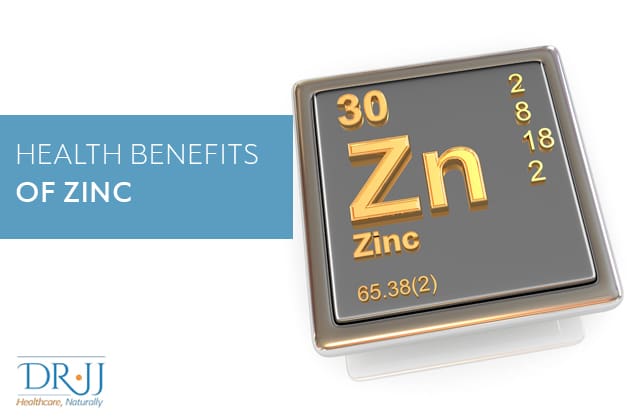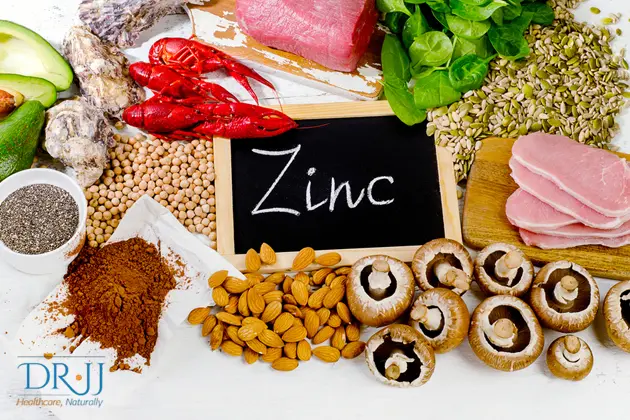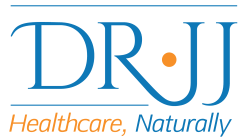
When you think of zinc you’re likely picturing a silvery grey metal, but did you know it’s also an important nutrient for the functioning of your body.
Zinc is the second most plentiful trace mineral in your body after iron and is used in many functions, such as:
- Wound healing
- Immune function
- Protein synthesis
- Gene expression
- Growth
It’s great for the health of your skin, hair, and nails, and as a naturopath for cystic acne and other skin conditions, I use it as a natural treatment option for many of my clients.
Keep reading to for the low down on this important mineral.
What Is Zinc?
Zinc is a mineral which is found in a large number of both plant based and animal based foods.
There are also many foods which don’t contain zinc naturally, but are fortified with synthetic zinc such as snack bars, breakfast cereals, and flour for baking.
It’s considered an essential nutrient, which means in order to obtain it you need to get it through your diet, or via supplements – it can’t be produced or stored by the body.
Sometimes zinc is added to natural cold remedies such as lozenges and nasal sprays.
From a chemist’s perspective, zinc is element #30 on the periodic table.
And from an aesthetic perspective, zinc is mixed with copper to create brass.
The Many Health Benefits Of Zinc
Getting enough zinc is critical to your health.
Let’s have a look at some of the roles it plays in the body and the benefits associated with it.
1. It Helps Your Wounds Heal Faster
One of the really cool things about the human body is its ability to repair itself when it experiences burns, cuts, ulcers, and other wounds to the skin.
In fact, zinc is so helpful in repairing wounds, it’s often used as a treatment in hospitals for skin injuries such as burns.
Just as using zinc supplements can help speed up wound recovery, zinc deficiency can lead to slower wound healing.
2. It’s Good For Your Skin And Hair
Approximately five percent of the zinc in your body is held in your skin.
We’ve already discussed the effects of zinc on wound healing, but it also provides skin benefits in other ways.
It’s important for synthesizing collagen, a protein which plays a number of roles, one of which is providing structure to the skin.
Zinc has also been shown to have anti-inflammatory properties which may help to clear up acne, and may also help with rosacea.
In a previous article, we talked about the causes and treatments for male pattern baldness, and the foods I recommended were partially because of their zinc content.
Mixed with other nutrients, including vitamin C, A, B, D, and E, as well as omega-3 fatty acids, zinc can help with male pattern baldness.
3. It’s Good For Your Immune System
Zinc plays a vital role in the functioning of the immune system.
Zinc is important for the development of immune cells, and not getting enough zinc can lead to a weakened immune response.
One 2017 meta analysis found using zinc lozenges may help reduce the length a cold lasts by about one third.
In older adults’ zinc supplementation may help reduce infection risk.
4. It Can Decrease Inflammation
Zinc plays an important role in managing inflammation response in the body.
It helps to reduce oxidative stress and levels of some proteins which can lead to inflammation.
Increased oxidative stress results in chronic inflammation, as well as many chronic conditions such as mental decline, heart disease, and cancer.
Prolonged zinc deficiency can lend to systematic inflammation and may play a role in lowered immune system function in the elderly.
5. It Can Raise Your Testosterone
The hormone testosterone is important for men’s health, and affects factors such as muscle and bone growth, and sex drive.
Low levels of testosterone may be the result of the condition hypogonadism.
Symptoms of hypogonadism can include:
- Fatigue
- Low sex drive
- Hot flashes
- Trouble concentrating
- Decreased muscle mass
- Male fertility issues
- Erectile dysfunction
Zinc deficiency has been linked to low testosterone levels, however the reason for this is not fully understood at this point in time.
If you are experiencing low testosterone levels, supplementation with zinc may help to increase them.
6. It Can Help Manage Acne
Acne is generally caused by a combination of bacteria, oil producing glands, and inflammation.
Due to its anti-inflammatory properties, zinc may help in clearing up those pesky spots.
In addition, zinc may inhibit the growth of acne causing bacteria, and act to suppress the activity of oil producing glands.
Both topical zinc treatments, as well as oral supplements have shown to be effective in the fight against acne.
As a result, my IV therapy for skin rejuvenation cocktail includes zinc.

Dietary Sources Of Zinc
Some great dietary sources of zinc include:
- Whole grains such as quinoa and brown rice
- Oatmeal
- Shellfish like crab, mussels, clams, and oysters
- Poultry such as chicken and turkey
- Eggs
- Dairy products including milk and cheese
- Fish such as sardines, sole, and salmon
- Meat like pork, lamb, and beef
- Legumes which include lentils, kidney beans, black beans, and chickpeas
- Some vegetables, such as kale, peas, and mushrooms
- Seeds and nuts, like cashews, hemp seeds, and pumpkin seeds
- Fortified breads and cereals
Can You Overdose On Zinc?
It is possible to overdose on zinc, although this usually occurs when too much is taken in through supplements, rather than diet.
If you are taking zinc supplements, the following signs and symptoms could indicate an overdose:
- Lowered immune system function
- Digestive issues like nausea, vomiting, diarrhea, and abdominal cramps
- Decreased appetite
- Lower levels of HDL (aka “good”) cholesterol
- Headaches
In addition, too much zinc can interfere with your body’s absorption of other nutrients, including iron and copper.
Should You Supplement With Zinc?
For the majority of the population, it should be relatively easy to get their daily intake of zinc through their diet.
However, if you have zinc deficiency or a medical condition which inhibits how much zinc you can absorb, then you may benefit from supplementation.
When choosing zinc supplements, opt for zinc gluconate or zinc citrate as they are more easily absorbed by the body than zinc oxide.
Additionally, be sure to discuss any supplements you may be considering with your Toronto naturopathic doctor to ensure you’re taking the right dose.
Questions? Ask Dr. JJ!
Are you experiencing a skin condition, and can’t seem to figure out what’s causing it.
Maybe you’ve always struggled with acne or eczema and have tried every cream, serum, and other topical treatment in the drugstore without any luck.
Perhaps you hadn’t considered it could be due to a lack of a mineral, such as zinc.
Are you considering immune boosting IV injections?
Or maybe you have another condition which you can’t quite get to the bottom of.
I’m Dr. JJ, a naturopathic doctor in Toronto, and I want to help.
Contact my office today for more information on how naturopathic medicine can help you.
If you have questions about naturopathic medicine, or you’d like to take your first step into the world of naturopathy, contact me, Dr. JJ, and let’s book an appointment.
Yours in health,
Dr. JJ Dugoua, Naturopathic Doctor
600 Sherbourne St, Suite 315,
Toronto, ON M4X 1W4
-https://goo.gl/maps/6VDXwiCihRpDRo5A9
Dr. JJ Dugoua is a naturopathic doctor in Toronto and has a PhD in Pharmaceutical Sciences. His clinic provides solutions for many health concerns and has a special focus on thyroid health issues.


